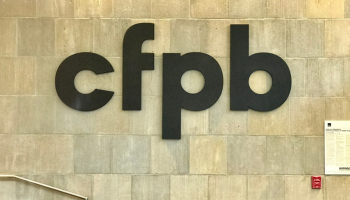CFPB plans to curb overdraft fees
The new rules could save consumers over $3.5 billion in fees per year
- |
- Written by Banking Exchange staff

The Consumer Financial Protection Bureau (CFPB) has proposed a rule that would curb overdraft fees incurred when consumers withdraw more than the available funds in their bank account.
The proposal follows the CFPB’s recent survey that found 43% of consumers charged an overdraft fee were caught off guard, indicating a lack of transparency.
The new regulation would cut the average overdraft fee by more than half, which would allow the 23 million American households that pay these fees to save an average of $150 per year.
This would collectively save families $3.5 billion in fees every year, according to the CFPB’s estimates.
Overdraft fees are charged when an institution covers a deposit account holder’s transaction, such as a payment or withdrawal, even though there is not enough money available in the account.
In a statement, President Joe Biden said: “For too long, some banks have charged exorbitant overdraft fees — sometimes $30 or more — that often hit the most vulnerable Americans the hardest, all while banks pad their bottom lines. Banks call it a service — I call it exploitation.”
The rule would apply to banks or credit unions with more than $10 billion in assets, which account for the largest share of deposit account customers in the United States.
Large financial institutions would still be able to offer profitable overdraft loans, but overdraft programs would be subject to the Truth in Lending Act and abide by the same rules as credit cards.
This means institutions could only offer overdrafts loans if they make clear disclosures on applicable interest rates and fees.
The CFPB said: “The proposed rule provides clear rules of the road for banks that offer credit features linked to debit card products, which may emerge as a competitor to traditional credit cards.”
The proposal is subject to a period of public comment as part of the regulatory approval process. If approved, it will take effect from October 2025.
Tagged under CFPB, Consumer Credit, Compliance, Fee Income, Profitability, Bank Performance, The Economy, Feature, Feature3, Customers, Compliance/Regulatory, Consumer Compliance, Community Banking, Duties,













